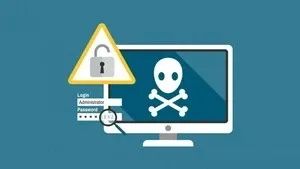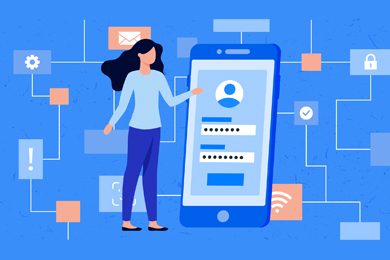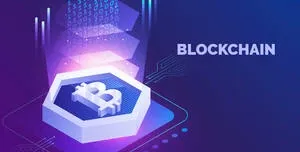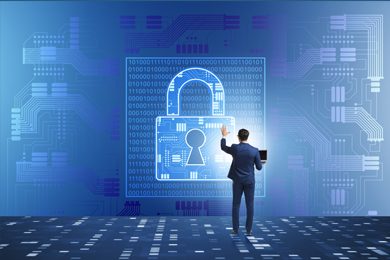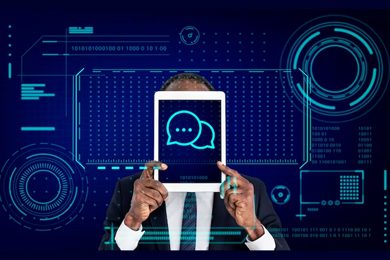This plan includes
- Limited free courses access
- Play & Pause Course Videos
- Video Recorded Lectures
- Learn on Mobile/PC/Tablet
- Quizzes and Real Projects
- Lifetime Course Certificate
- Email & Chat Support
What you'll learn?
- Encryption
- Port Blocking
- Boot Security
- Authentication
- Access Control
- Operational Security
- Backup & Restore
- Virtual Machines
Course Overview
In this course, you will learn to strengthen the security of your devices in such a way that it makes it harder for threat actors to infiltrate your system. You’ll learn basic cybersecurity principles known by many cybersecurity professionals. Such include the following;
1. When to use an Administrative Account.
2. BitLocker
3. Blocking Ports that aren’t needed within your network (For both Linux and Windows)
3. Create Local Account for regular usage in the system
4. Learn when to use root on Linux
5. Other steps you can take to harden the computer system
Please be assured that what you’ll learn here will be top-notch from most cybersecurity expert certifications that exist out there. You will be guided through procedures on hardening your systems and networks in every way possible step-by-step throughout this course and will learn common things required to make sure that your systems remain as secure as possible throughout the time of using them.
Hardening is one of the most important components when it comes to cybersecurity. You may take this as a refreshers course, or as a course to just learn how to secure your systems. Nonetheless, please don’t use any of the knowledge here for illegal purposes; I will not be responsible for any damages that you cause to any systems. All devices I’ve used here are my own. This is a course meant to present learners to the basics of hardening a computer system. Components such as Software Hardening, Server Hardening and other kinds of Hardening aren't covered in this course. Operating System Hardening is covered in full context and can give the concept for Software Hardening and other forms of Hardening as the same settings apply for Softwares and Servers and other hardening as well and just requires the use of common sense after completing the whole course.
I would like to include that parts of this course covers some of the objectives learned within the CompTIA A+ and the ISC2 CC.
Pre-requisites
- Windows 11
- Debian-based Linux OS
- An active internet connection
- Virtual Machine (Optional)
- Pre-installed Linux Firewall (ufw used in this explanation)
Target Audience
- Cybersecurity Enthusiasts
- Those willing to learn Cybersecurity
- Those willing to secure their data and information
- Those willing to protect their data and information on PC
Curriculum 20 Lectures 00:05:54
Section 1 : Introduction
- Lecture 2 :
- Course Introduction
Section 2 : Windows Hardening
- Lecture 1 :
- BitLocker
- Lecture 2 :
- Least Privilege
- Lecture 3 :
- Time-based Password Policy
- Lecture 4 :
- Removing Unnecessary Softwares
- Lecture 5 :
- Keeping the System and Softwares Up To Date
- Lecture 6 :
- Turning off unnecessary services
- Lecture 7 :
- Closing Unnecessary Ports
- Lecture 8 :
- Configuring System Protection & System Restore
- Lecture 9 :
- Turning off Windows RDP and Unnecessary Settings
Section 3 : Linux Hardening
- Lecture 1 :
- Least Privilege
- Lecture 2 :
- Keeping System Up To Date & Hardening Virtual Machine
- Lecture 3 :
- Removing Unnecessary Software
- Lecture 4 :
- Blocking off unnecessary ports
- Lecture 5 :
- Turning off unnecessary settings
Section 4 : OPSEC
- Lecture 1 :
- Operational Security
Section 5 : Conclusion
- Lecture 1 :
- Boot Hardening
- Lecture 2 :
- Conclusion
- Lecture 3 :
- Final Examination
Our learners work at
Frequently Asked Questions
How do i access the course after purchase?
It's simple. When you sign up, you'll immediately have unlimited viewing of thousands of expert courses, paths to guide your learning, tools to measure your skills and hands-on resources like exercise files. There’s no limit on what you can learn and you can cancel at any time.Are these video based online self-learning courses?
Yes. All of the courses comes with online video based lectures created by certified instructors. Instructors have crafted these courses with a blend of high quality interactive videos, lectures, quizzes & real world projects to give you an indepth knowledge about the topic.Can i play & pause the course as per my convenience?
Yes absolutely & thats one of the advantage of self-paced courses. You can anytime pause or resume the course & come back & forth from one lecture to another lecture, play the videos mulitple times & so on.How do i contact the instructor for any doubts or questions?
Most of these courses have general questions & answers already covered within the course lectures. However, if you need any further help from the instructor, you can use the inbuilt Chat with Instructor option to send a message to an instructor & they will reply you within 24 hours. You can ask as many questions as you want.Do i need a pc to access the course or can i do it on mobile & tablet as well?
Brilliant question? Isn't it? You can access the courses on any device like PC, Mobile, Tablet & even on a smart tv. For mobile & a tablet you can download the Learnfly android or an iOS app. If mobile app is not available in your country, you can access the course directly by visting our website, its fully mobile friendly.Do i get any certificate for the courses?
Yes. Once you complete any course on our platform along with provided assessments by the instructor, you will be eligble to get certificate of course completion.
For how long can i access my course on the platform?
You require an active subscription to access courses on our platform. If your subscription is active, you can access any course on our platform with no restrictions.Is there any free trial?
Currently, we do not offer any free trial.Can i cancel anytime?
Yes, you can cancel your subscription at any time. Your subscription will auto-renew until you cancel, but why would you want to?
Instructor

249 Course Views
1 Courses



 Tech & IT
Tech & IT
 Business
Business
 Coding & Developer
Coding & Developer
 Finance & Accounting
Finance & Accounting
 Academics
Academics
 Office Applications
Office Applications
 Art & Design
Art & Design
 Marketing
Marketing
 Health & Wellness
Health & Wellness
 Sounds & Music
Sounds & Music
 Lifestyle
Lifestyle
 Photography
Photography




.jpg)

